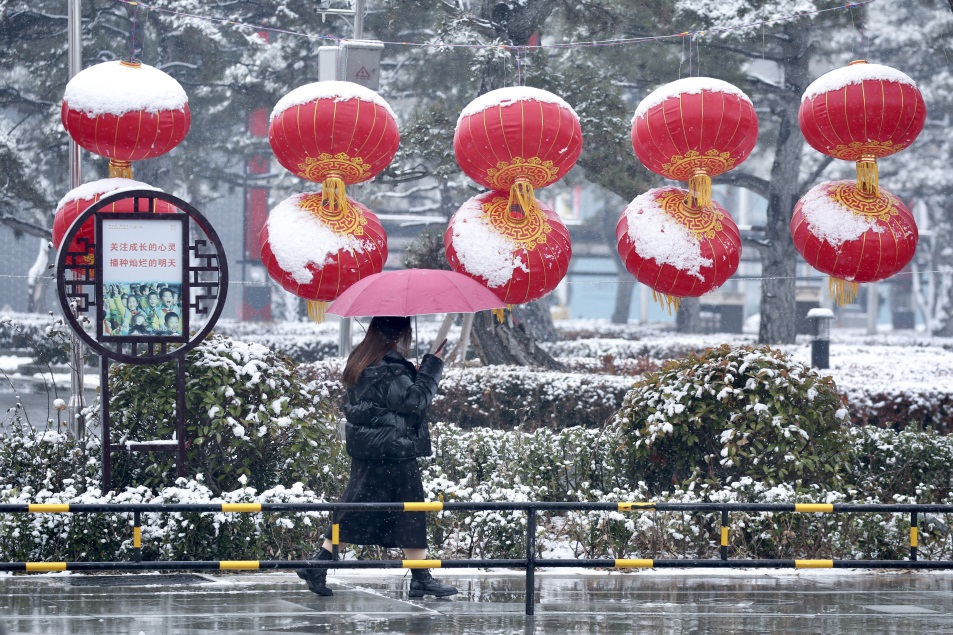Xi Focus: Building community with shared future to confront global challenges
Over the past two years, some countries have taken care of themselves at the expense of others, some have slung mud and shifted blame, and others have engaged in bullying and snatched vaccines.
For his part, President Xi Jinping has made his argument crystal clear -- solidarity and cooperation is the most powerful weapon for defeating the virus.
He has appealed for global solidarity on many occasions and pushed for a community of health for all.
Global humanitarian action has been launched, the largest since 1949 when the People's Republic of China was founded. In 2021 alone, China provided more than two billion doses of vaccines for some 120 countries and international organizations, more than any other country in the world. One of every two shots administered around the world came from China.
"Amidst the raging torrents of a global crisis, countries are not riding separately in some 190 small boats, but are rather all in a giant ship on which our shared destiny hinges," said Xi.
A fundamental logic is that humanity shares a common future.
This also underscores the direction of China's diplomacy in the new era.
"Mankind, by living in the same global village in the same era where history and reality meet, has increasingly emerged as a community of common destiny in which everyone has in himself a little bit of others," Xi said at the Moscow State Institute of International Relations, Russia, in March 2013.
This marked the debut of his flagship vision of building a community with a shared future for humanity.
Based on the ideal of universal harmony in Chinese culture, the vision embodies an advanced worldview and represents a comprehensive, revolutionary transcendence over the realpolitik approach to international relations in the West. It is one of the latest theoretical achievements in adapting Marxism to the Chinese context and the needs of the times.
Based on this vision, China has been forging communities with a shared future at bilateral and regional levels. It has also proposed to build such communities in the fields of cyberspace, nuclear security, ocean and health.
The vision has been written into the Constitution of the Communist Party of China, the Constitution of the country, as well as documents of multilateral mechanisms, including the United Nations (UN) and the Shanghai Cooperation Organization. It has increasingly become an international consensus.
Since the 18th CPC National Congress in 2012, Xi has made 41 overseas trips as Chinese president, with footprints covering 69 countries on five continents. China has explored a new path of growing state-to-state relations based on communication, not confrontation, and based on partnership, not alliance.
"Frequent overseas trips may be exhausting, but we are repaid with a broader network of friends," said Xi.
China has established diplomatic relations with 181 countries. It also has partnerships with more than 110 countries and international organizations.
Contrary to a couple of countries that have engaged in hegemonism and bullying, China has stayed committed to fairness and justice on the international stage, stuck to extensive consultation, joint contribution and shared benefits, and continued to stand up and speak for developing countries.
China holds that global affairs should be jointly managed by all countries. It advocates true multilateralism. There is only one set of rules in this regard -- the basic norms governing international relations underpinned by the purposes and principles of the UN Charter.
The vision of a community with a shared future for humanity is the epitome of Xi Jinping Thought on Socialism with Chinese Characteristics for a New Era in China's diplomacy. It is China's proposal for solving problems facing humanity and advancing world peace.
Building such a community is "the only future for humanity on this planet," said Peter Thomson, president of the 71st Session of the UN General Assembly.

 Shandong: Where Excellence is made
Shandong: Where Excellence is made Building a Moderately Prosperous Society: The Tai'an Way
Building a Moderately Prosperous Society: The Tai'an Way Video: Jiunvfeng Park
Video: Jiunvfeng Park

